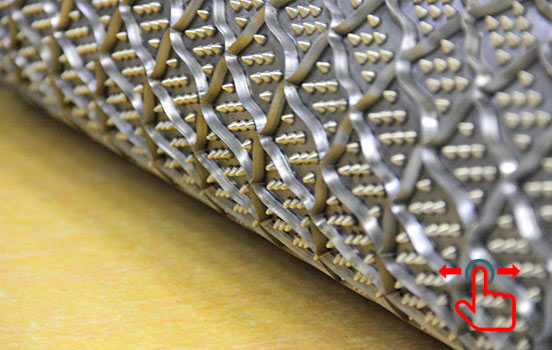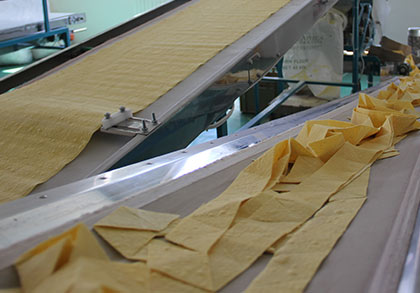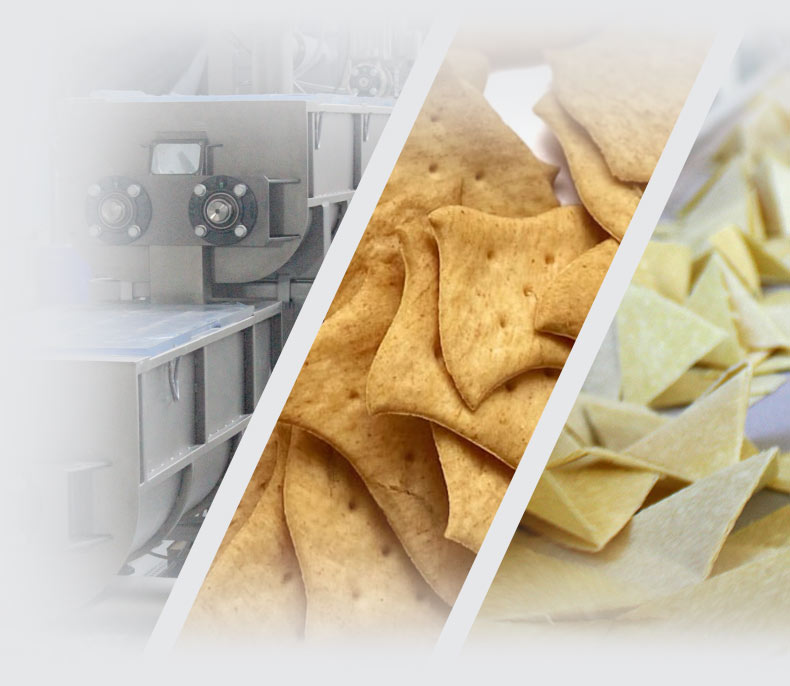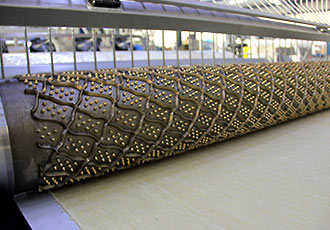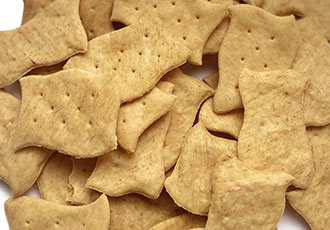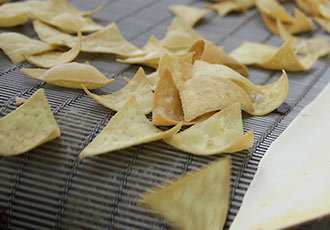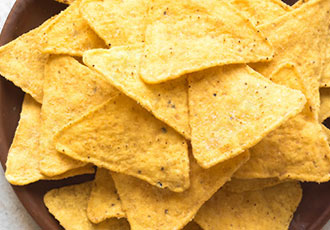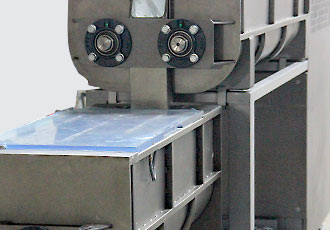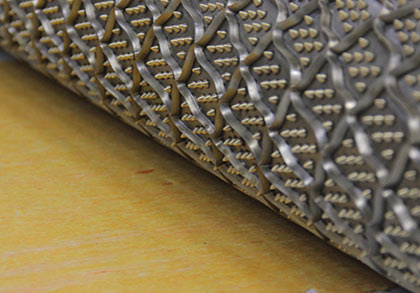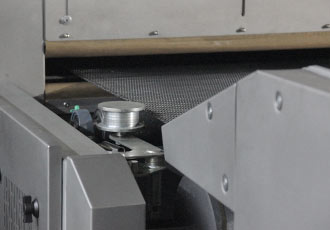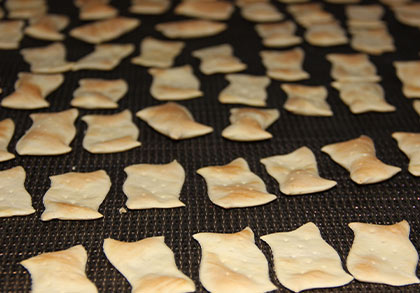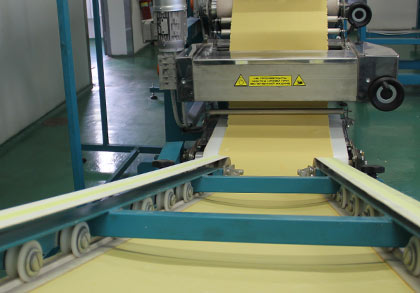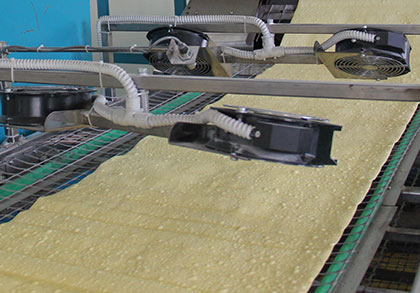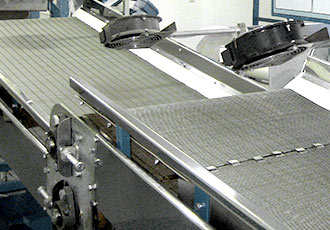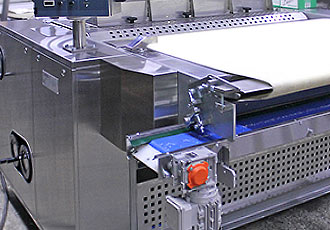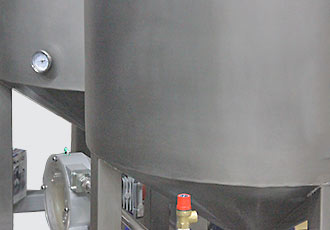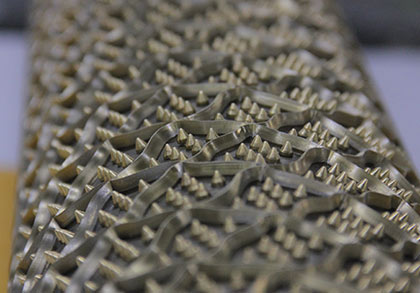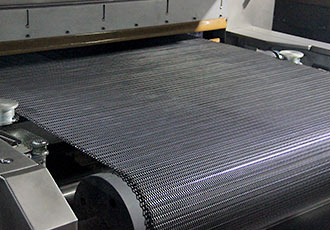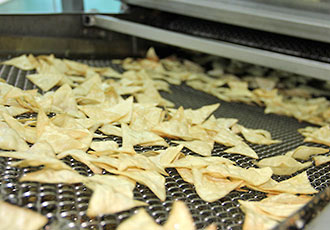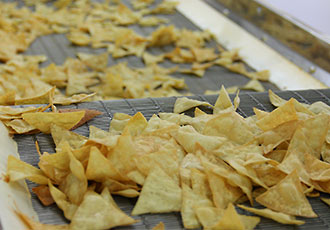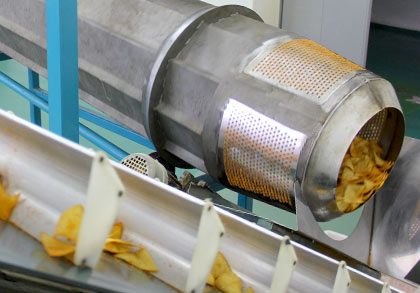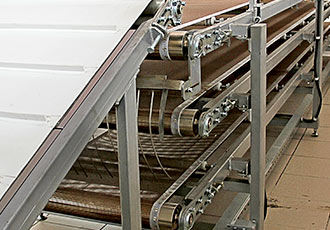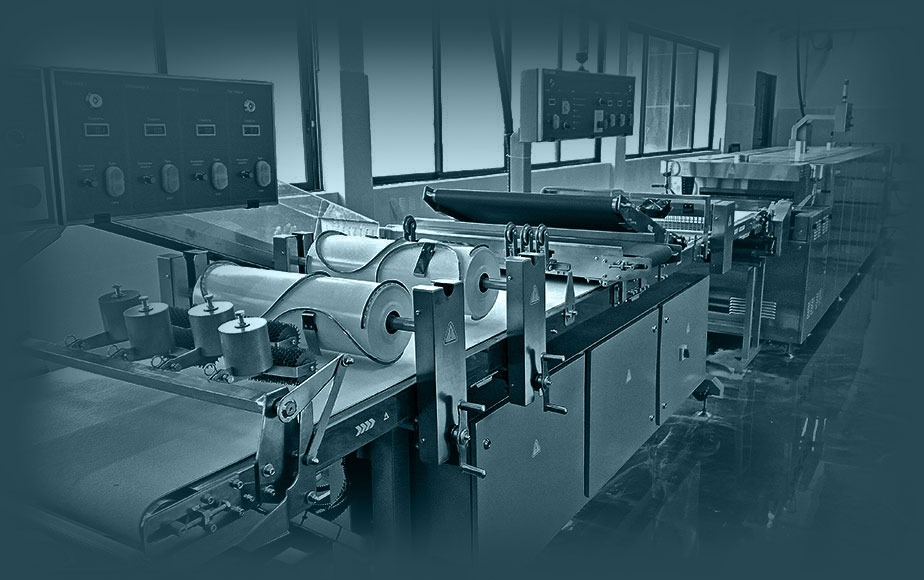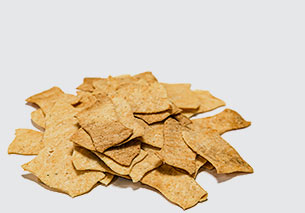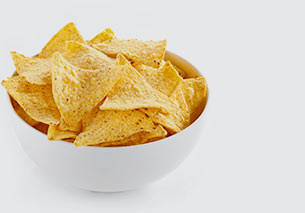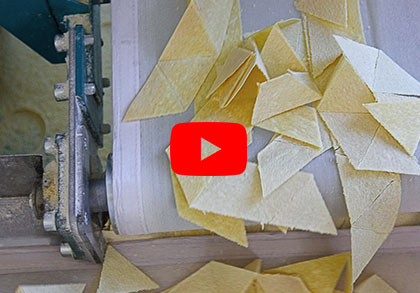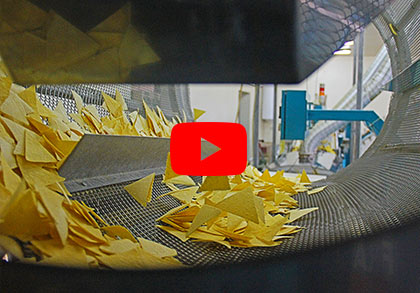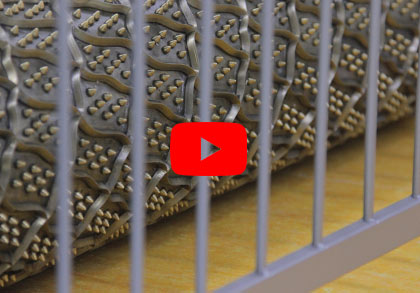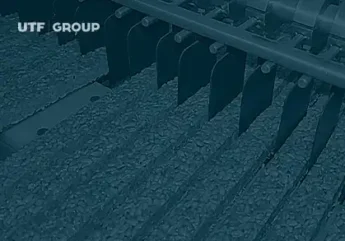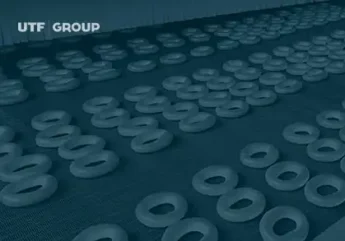FLOUR SNACKS IS A PROMISING BUSINESS TREND
Snacks are one of the steadily growing areas of food production. This is due to the growth of the product range and the launch of new products on the market. Therefore, snack food machinery manufacturers are developing new snack food production line. While developping snacks processing equipment, it is often necessary to ensure the versatility of snacks processing machines in order to be able to produce several types of snacks.
Flour snacks are one of the most affordable types of food for the chips makers, which ensures the popularity of this direction. Snack food production line in this direction are the most common snack lines.
One of the promising area is the production of snack lines for low-calorie snacks manufecturing, including gluten-free chips without oil production.
FLOUR CHIPS AS AN ALTERNATIVE TO POTATO CHIPS
It has been long known that traditional potato chips are not a useful product, and in large quantities can even harm the body. Nevertheless, this information did not reduce the attractiveness of crispy potato slices to consumers.
There is a search for products that could replace potato chips with more useful product all over the world. At the moment, the most popular alternative are chips made of flour. These products, made from corn flour or a mixture of corn flour and wheat flour, are becoming popular every year.
The most known is the nachos chips. Along with them, there is a large number of other similar types of chips, which are produced under many names and trademarks in many countries of the world.
WHICH FOOD BUSINESS IS MOST PROFITABLE?
The production of snacks is a promising and rapidly growing area in the food industry. In this field, there is the largest number of new products that bring maximum profit.
UTF GROUP produces industrial equipment for the production of chips from various types of dough: multi-grain, gluten-free, corn, protein chips and other snacks.
– modern design for flexibility and easy integration of additional units
– innovative solutions to meet the needs of the consumer
– easy maintenance and long service life
— automation of the production process to reduce the influence of the human factor and to minimize the possibility of food contamination
— compliance with safety and sanitation standards
— use of materials ensuring the least risk of product contamination
– quality certificates



 AUTOMATIC LINE FOR LAVASH PRODUCTION WITH THE CAPACITY OF 100 KG/H
AUTOMATIC LINE FOR LAVASH PRODUCTION WITH THE CAPACITY OF 100 KG/H 

